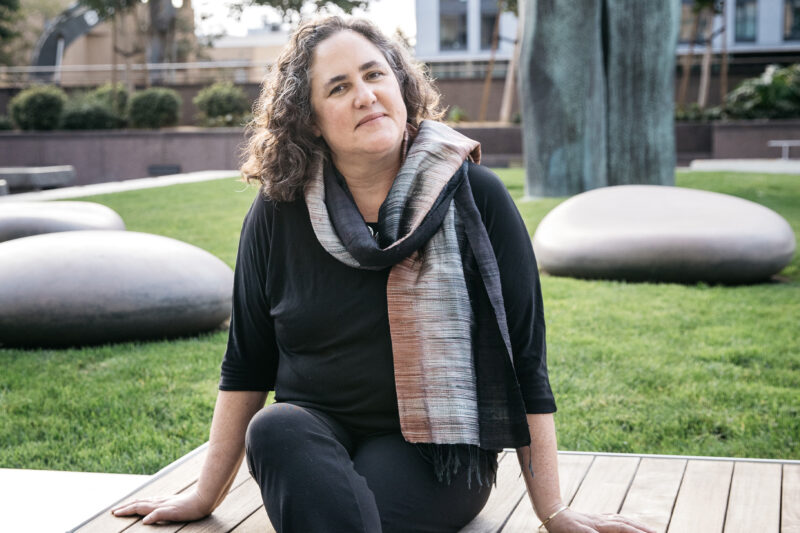She Was Tracking Post-‘Roe’ Abortions. The Government Just Pulled Her Funding.
Diana Greene Foster, who was behind the landmark Turnaway Study, wanted to study the health and economic impacts of the loss of abortion access.

This story was originally reported by Shefali Luthra of The 19th, and republished through Rewire News Group’s partnership with The 19th News Network.
Diana Greene Foster is responsible for landmark research on the effects of abortion access — a massive 10-year study that tracked thousands of people who had an abortion or were denied one. But funding for a follow-up to her seminal Turnaway Study has just been cut as part of a wave of canceled health policy research.
Foster received a MacArthur “genius grant” for the Turnaway Study. That piece of research, which examined the impact of restrictions even before the fall of Roe v. Wade, helped shape public understanding of how abortion access can affect people’s health and economic well-being by finding that people who were denied abortions were more likely to experience years of poverty compared to those who could terminate their unplanned pregnancies.
Foster’s new study was meant to build on that research, using quantitative analysis and in-depth interviews to follow people who sought abortions in or outside of the medical system after federal abortion rights were terminated, as well as those who carried their pregnancies to term. Though national data has shown that the number of abortions has gone up since Roe was overturned, little research has examined who is still able to access care in the face of abortion bans, or what it means for people’s health and economic well-being when they cannot.
“It is very likely that certain types of people are less likely to be able to get a wanted abortion. And I think that includes people who experience pregnancy complications and are too sick to travel across state lines,” Foster wrote in an email to The 19th. “Some cases make the newspapers but only systematic study can tell us how often it happens, quantify the added health risks of the law and help us understand how to mitigate the harms.”
The study began immediately after Roe’s fall, using private donations; Foster spent the past two-and-a-half years securing federal funding to expand her work. Her research was only six months into what was supposed to be a five-year grant when the federal funding was pulled.
Already, that research had begun to yield results. Foster’s team was about to publish data showing that in states with abortion bans, people were more likely to seek abortions in their second trimester than they had been before — possibly the result of having to navigate new, onerous restrictions. Federal funding had enabled the study to expand the number of people it followed so that her team could better understand how abortion bans have affected people with medically complex pregnancies, including those who need abortions because of medical emergencies.
“Our study would rigorously examine how state abortion bans — with and without health exceptions — affect treatment of medical emergencies, like preterm prelabor rupture of membranes, preeclampsia and ectopic pregnancy, through surveys and interviews with physicians in emergency departments across the U.S.,” Foster said. “This is a topic for which we desperately need data.”
The future of that work is now uncertain. A letter from the National Institutes of Health (NIH), which Foster shared with The 19th, said that her research was no longer aligned with federal goals: “Research programs based on gender identity are often unscientific, have little identifiable return on investment, and do nothing to enhance the health of many Americans,” the letter read.
That phrasing has appeared in other letters sent to researchers whose work centers on women or LGBTQ+ people, though also in work like Foster’s, which is not explicitly about gender identity. The NIH has canceled funding for scores of studies relevant to gender, women and LGBTQ+ people, a pattern that threatens to undercut a decades-long effort to improve how scientific research considers gender.
Foster said her team had only used less than $200,000 of an anticipated $2.5 million in NIH support, slated to be spread out over the five years. She intends to continue the study, she said, but the cancellation of their federal grant means her team cannot pay for all the staff it needs, including personnel to interview patients and physicians about their experiences navigating abortion bans. That’s information that some states with abortion bans — such as Texas, the largest state to ban the procedure — aren’t tracking.
“I am madly fundraising to replace these canceled funds,” she wrote. “I would rather be spending the time implementing the study than beginning the fundraising again.”
